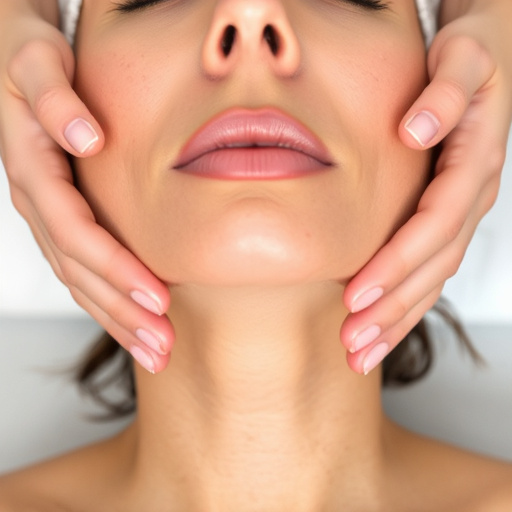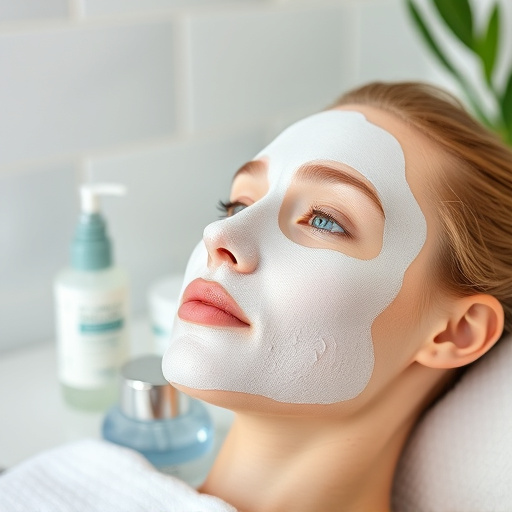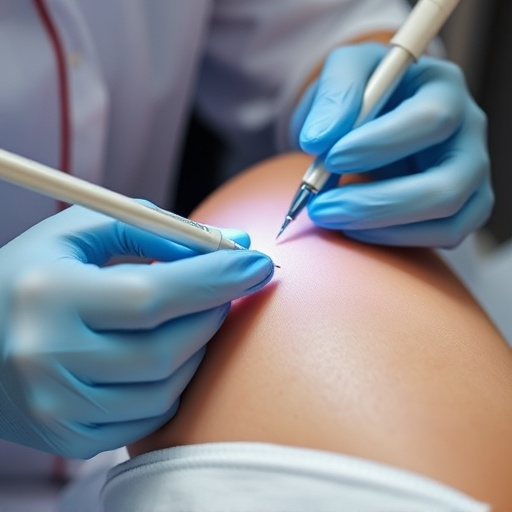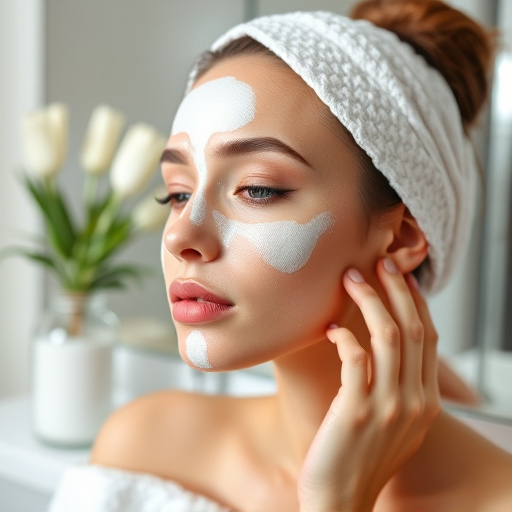Melasma recurrence is influenced by hormonal fluctuations, medications, and sun exposure. Prevent future outbreaks with gentle skincare, SPF protection, and professional facials. Holistic approach includes lifestyle modifications like sun safety, hydration, exercise, stress management, and procedures for prolonged melasma treatment results.
Melasma, often called the ‘mask of pregnancy,’ can leave a lasting stain on your complexion. While effective treatments exist, preventing recurrence is key to achieving lasting clarity. This guide delves into the factors that spark Melasma’s return, outlining a comprehensive strategy for post-treatment care. From tailored skin care routines to lifestyle adjustments, discover practical tips to safeguard your skin and maintain the clear, radiant look you’ve achieved.
- Understand Melasma Recurrence Factors
- Post-Treatment Skin Care Routine
- Lifestyle Changes for Longevity
Understand Melasma Recurrence Factors

Melasma recurrence after treatment is a concern for many individuals who have successfully managed their discoloration. Understanding the factors that contribute to its return is key to preventing future outbreaks. Several elements can trigger melasma’s reappearance, including hormonal fluctuations, certain medications, and exposure to sunlight. Hormonal changes, especially during pregnancy or due to birth control pills, are a significant factor as these can stimulate melanin production in the skin.
Additionally, acne treatments and hydrating facials, while beneficial for overall skin health, might also play a role in melasma recurrence. Some procedures and products used in skincare can induce hyperpigmentation in susceptible individuals. Therefore, it’s crucial to maintain a consistent skin care routine that incorporates gentle, non-irritating products and protective measures against the sun.
Post-Treatment Skin Care Routine

After undergoing melasma treatment, establishing a robust post-treatment skin care routine is paramount to prevent recurrence. The first step involves cleansing your face gently twice daily with a mild cleanser to remove any impurities and avoid irritation. Follow this with an application of sunscreen with at least SPF 30; this protective layer shields your skin from damaging UV rays, which can trigger melasma flare-ups.
Consider incorporating customized facials into your routine for enhanced results. These professional skincare treatments can deeply cleanse the skin, reduce wrinkles, and provide essential nutrients, leaving your complexion radiant and healthy. Regular use of hydrating creams and serums that contain ingredients like vitamin C and niacinamide is also beneficial. These products not only brighten the skin but also help even out skin tone, reducing the visibility of melasma scars.
Lifestyle Changes for Longevity

Melasma treatment is not just a one-time solution; preventing its recurrence requires a holistic approach, starting with significant lifestyle changes. Beyond regular skincare routines, adopting healthier habits can significantly prolong the results of melasma treatment and reduce the likelihood of future outbreaks. This includes practicing sun safety by always wearing sunscreen with high SPF, reapplying it every few hours during peak sunlight, and avoiding prolonged exposure to the sun.
Incorporating a balanced diet rich in antioxidants, vitamins, and minerals can also benefit your skin health. Staying hydrated, engaging in regular physical activity, and managing stress levels are other key factors. Additionally, exploring procedures like laser hair removal for facial hair reduction, which can lessen hormonal fluctuations known to trigger melasma, may be worth considering as part of a comprehensive strategy to prevent recurring melasma.
Preventing melasma recurrence after treatment requires a comprehensive approach. By understanding the factors that contribute to its return, such as hormonal changes and sun exposure, you can implement effective strategies. A diligent post-treatment skin care routine, including daily sunscreen use, is essential. Additionally, lifestyle modifications like maintaining hydration, managing stress, and limiting coffee intake can significantly reduce the risk of melasma coming back. Following these measures will help ensure long-term success in melasma treatment and maintain clear, even skin.














